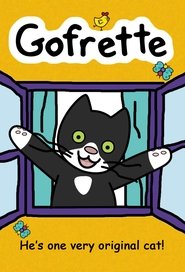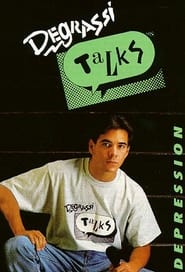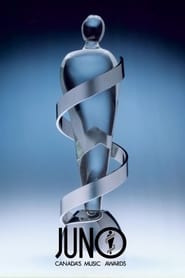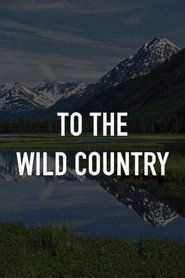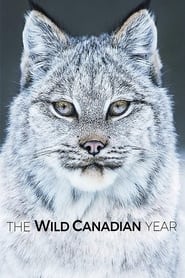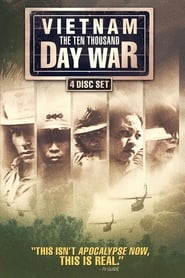Cbc Television TV Series - Page 15
-
Conspiracy of Silence
1991
star 8The tragic and troubling true story which made headlines across the nation. Helen Betty Osborne, a young Aboriginal student who was brutally beaten and slain in a The Pas, Manitoba town in 1971. Her murder remained unsolved for nearly 16 years, despite the fact that within days of the tragedy, rumours began circulating of the identity of the men involved. -
Gofrette
2008
star 9Happy-go-lucky Gofrette the cat goes on wacky adventures with his two best friends, Fudge the dog, and Ellie, a bird with a propeller on her head, in the colorful town of Zanimo. -
Degrassi Talks
1992
star 1Degrassi Talks was a Canadian television series which aired in 1992. A sequel to the popular Degrassi series of television shows, Degrassi Talks was a six-episode documentary series which featured popular Degrassi actors discussing health and social issues with teenaged audiences. Each episode was hosted by one Degrassi actor, although other actors participated in the series as well. Topics included drug abuse, gay rights, depression, and teenage pregnancy. The show was produced by the Canadian Broadcasting Corporation in cooperation with Health and Welfare Canada. Episodes of Degrassi Talks were packaged in the Degrassi Junior High DVD set. -
Under New Management
2019
Under New Management
2019
Renowned venture capitalist Arlene Dickinson coaches budding entrepreneurs on a life-changing journey of assessing three businesses for sale. -
Kingdom Force
2019
Kingdom Force
2019
A 3D-animated action series for kids ages 3-6, KINGDOM FORCE follows the fast-paced exploits of five mighty animal heroes as they serve and protect the citizens of five unique animal kingdoms. -
Juno Awards
1970
Juno Awards
1970
The Juno Awards, more popularly known as the JUNOS, are awards presented annually to Canadian musical artists and bands to acknowledge their artistic and technical achievements in all aspects of music. New members of the Canadian Music Hall of Fame are also inducted as part of the awards ceremonies. -
Mittens & Pants
2023
Mittens & Pants
2023
Best friends Mittens the kitten and Pants the puppy go on adventures in the all-animal town of Kibble Corners. Despite being a dog and a cat, they are the best of friends because they accept that they are different. -
To the Wild Country
1972
To the Wild Country
1972
Naturalists John and Janet Foster lead a series of expeditions into the remotest regions of Canada, revealing the spectacular features and wildlife of its vast system of National Parks. From Pacific Rim National Park to Gros Morne National Park, they travel from one end to the other of the world’s second largest country. -
The Wild Canadian Year
2017
View Canada’s extraordinary wildlife through the lens of its four distinct seasons. -
Absolutely Canadian
0000
Absolutely Canadian
0000
Absolutely Canadian is a Canadian television series, which airs weekdays on CBC Newsworld, CBC Television and CBC Country Canada. A news and information series about Canadian communities, the show is anchored each week from a different Canadian city. -
Vietnam: The Ten Thousand Day War (1980)
0000
star 9.5Vietnam: The Ten Thousand Day War, a 26-part Canadian television documentary on the Vietnam War, was produced in 1980 by Michael Maclear. The series aired in Canada on CBC Television, in the United States and in the United Kingdom on Channel 4. Maclear visited Vietnam during the production of the series and had access to film material there. He was the first Western journalist allowed to visit that area since the war. The documentary series was consolidated into 13 hour-long episodes for American television syndication. The series was released on videocassette format by Embassy and won a National Education Association award for best world documentary. Series writer Peter Arnett was an Associated Press reporter in Vietnam from 1962 to 1975. CBC aired only 18 of the episodes during the 1980-81 season because the series production was incomplete. The remaining episodes were broadcast during CBC's 1981-82 season. -
Shooting the Century
1998
-
Addison
0000
Addison
0000
Using imagination, reasoning, and boundless enthusiasm, inventor Addison loves to solve mysteries with her friends. -
Nightcap
0000
star 4Nightcap is a Canadian comedy and variety television series which aired on CBC Television from 1963 to 1967. -
Wok with Yan
1980
Wok with Yan
1980
Wok with Yan was a Chinese cuisine cooking show starring Stephen Yan. The show was first produced in Vancouver, British Columbia, Canada by the CBC at CBUT from 1980 to 1982. A second edition of the show was also produced in the early 1990s. The popular series was syndicated internationally in United States, Philippines, Malaysia, Indonesia and Singapore for years. The humorous aprons also complemented his humour that consisted of spontaneous one-liners spoken with his trademark Cantonese accent or him playing with his food or cookware. That, combined with his energetic personality, endeared him to Canadian viewers. Prior to him preparing his stir fry cuisine, the show usually featured a vignette of Yan travelling to different vacation spots from around the world. He always invited an audience member to come up and eat with him near the end of each episode, and had a fortune cookie reading before the meal. -
Telescope
1963
star 6Telescope is a Canadian documentary series which aired on CBC Television between 1963 and 1973. The series was hosted by Fletcher Markle, which profiled notable Canadian people from celebrities to the unknown, who made a difference. Starting in September 1966, Telescope was the first regular colour broadcast in Canada. It's producer was Sam Levene. In 2008, CBC offered 10 episodes of Telescope on their Digital Archives website. The episodes are from the 1970-1971 season, and feature new host Ken Kavanagh. Among those profiled were game show host Monty Hall, publisher Mel Hurtig, journalist Pat Carney, actor John Vernon, author Farley Mowat, amusement park impresario Patty Conklin, and underwater explorer Joe MacInnis. A 1970 episode featured actor Donald Sutherland including early footage of his son Kiefer. Mentalist Uri Geller followed a week later by Ray Hyman and Jerry Andrus who explained and duplicated Geller's "paranormal" feats. -
Mr. Dressup
0000
star 9.2Mr. Dressup is a Canadian children's television series. It originally ran on CBC from 1967 to 1996. -
How Do You Solve a Problem Like Maria?
0000
How Do You Solve a Problem Like Maria? was a talent competition program that aired in Canada on CBC Television. It premiered on June 15, 2008 at 8pm EDT, and concluded on July 28, 2008. The show is based on the series of the same name which aired on BBC One in the United Kingdom in 2006. The premise of the series was to find a musical theatre performer to play the role of Maria von Trapp in the 2008 Andrew Lloyd Webber and David Mirvish revival of The Sound of Music at the Princess of Wales Theatre in Toronto. Initial auditions were held in seven Canadian cities. The show was hosted by Gavin Crawford and featured Simon Lee, Elaine Overholt, and John Barrowman as the judges for the show. The first episode of the show featured the top 50 auditioners at the show's Maria School being cut to 20. The second episode had the Marias performing in front of Lloyd Webber in London, and then the 20 were cut to 10 with his input. Beginning June 22, the Marias performed live in Toronto every Sunday night. The voting results air -
Time for Living
1969
Time for Living
1969
Time for Living was a Canadian variety television series which aired on CBC Television in 1969. -
Meltdown: The Secret History of the Global Collapse
2010
star 9The story of the bankers who crashed the world, the leaders who struggled to save it and the ordinary families who got crushed. The CBC’s Terence McKenna takes viewers behind the headlines and into the backrooms at the highest levels of world governments and banking institutions, revealing the astonishing level of backstabbing and tension behind the scenes as the world came dangerously close to another Great Depression.

